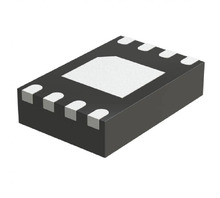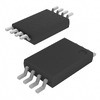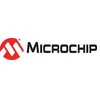Manufacturer Part Number
MCP79410T-I/MNY
Manufacturer
Microchip Technology
Introduction
The MCP79410T-I/MNY is a highly integrated real-time clock/calendar optimized for low power applications.
Product Features and Performance
Clock/Calendar functionality
Alarm feature
Leap Year compensation
Square Wave Output
SRAM and Unique ID included
Memory Size: 64B, 1Kb
Time Format: HH:MM:SS (12/24 hr)
Date Format: YY-MM-DD-dd
I2C, 2-Wire Serial interface
Voltage - Supply range: 1.8V ~ 5.5V
Voltage - Supply, Battery range: 1.3V ~ 5.5V
Current - Timekeeping (Max): 1.2µA @ 3.3V
Operating Temperature range: -40°C ~ 85°C
Surface Mount Mounting Type
8-WFDFN Exposed Pad Package / Case
8-TDFN (2x3) Supplier Device Package
Product Advantages
Flexible power supply options
Low power consumption
Extended temperature range operation
Compact form factor for space-constrained applications
Built-in unique ID for better system management
Enhanced stability and reliability owing to leap year compensation
Key Technical Parameters
Memory Size: 64B, 1Kb
I2C Interface
Voltage - Supply: 1.8V ~ 5.5V
Operating Temperature: -40°C ~ 85°C
Quality and Safety Features
Reliable timekeeping accuracy
Conforms to industry safety and quality standards
Compatibility
Compatible with a wide range of microcontrollers via the I2C interface
Application Areas
Consumer Electronics
Wearable Devices
Industrial Monitoring Systems
Security Systems
Data Loggers
Smart Home Devices
Product Lifecycle
Active status, ensuring long-term availability and support
No near discontinuation, ensuring stability for design choices
Replacements or upgrades readily available with same manufacturer
Several Key Reasons to Choose This Product
Low power consumption suitable for battery-operated devices
Wide voltage supply range for versatile application contexts
High reliability and accuracy in timekeeping
Comprehensive features including alarm, square wave output, and unique ID
Direct compatibility with a broad array of microcontrollers
Support and stability assured by its Active product lifecycle status



 MCP7940NT-E/SNMicrochip
MCP7940NT-E/SNMicrochip MCP79411-I/MSMicrochip TechnologyIC RTC CLK/CALENDAR I2C 8MSOP
MCP79411-I/MSMicrochip TechnologyIC RTC CLK/CALENDAR I2C 8MSOP MCP79410T-I/SNMicrochip TechnologyIC RTC CLK/CALENDAR I2C 8SOIC
MCP79410T-I/SNMicrochip TechnologyIC RTC CLK/CALENDAR I2C 8SOIC